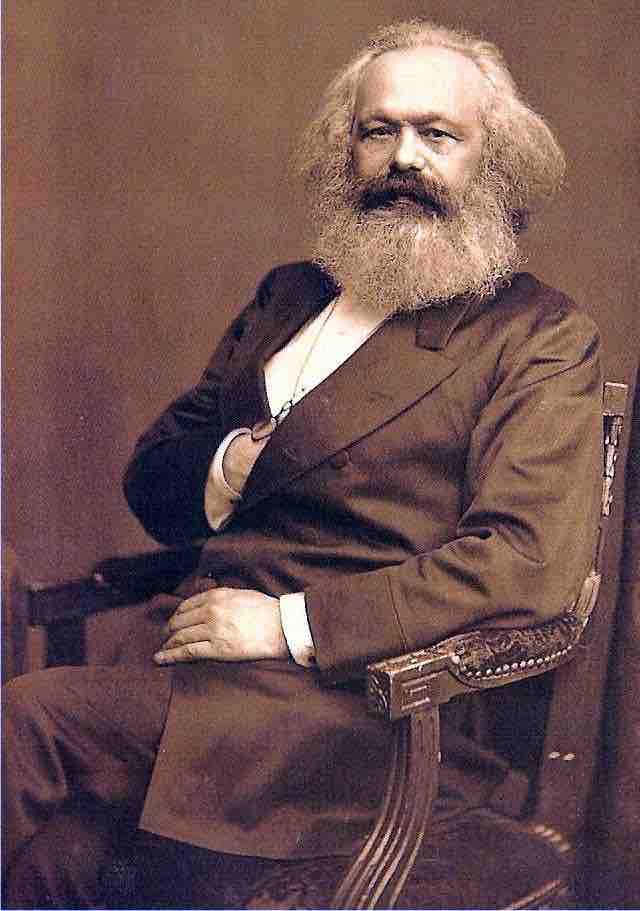The theory of alienation, as expressed in the writings of Karl Marx, refers to the separation of things that naturally belong together, or to put antagonism between things that are properly in harmony. In the concept's most important use, it refers to the social alienation of people from aspects of their "human nature. " Marx believed that alienation is a systematic result of capitalism.
Marx's theory of alienation is founded upon his observation that, within the capitalist mode of production, workers invariably lose determination of their lives and destinies by being deprived of the right to conceive of themselves as the director of their actions, to determine the character of their actions, to define their relationship to other actors, and to use or own the value of what is produced by their actions . Workers become autonomous, self-realized human beings, but are directed and diverted into goals and activities dictated by the bourgeoisie, who own the means of production in order to extract from workers the maximal amount of surplus value possible within the current state of competition between industrialists. By working, each contributes to the common wealth. Alienation in capitalist societies occurs because the worker can only express this fundamentally social aspect of individuality through a production system that is not collectively owned, but privately owned.

Karl Marx
Conflict theory derives from the ideas of Karl Marx.
In the "Economic and Philosophical Manuscripts of 1844," Marx identifies four types of alienation in labor under capitalism. The first is the alienation of the worker from the work he produced, or from the product of his labor. The product's design and the manner in which it is produced are determined not by its actual producers, nor even by those who consume products, but rather by the capitalist class. This capitalist class appropriates labor, including that of designers and engineers, and seeks to shape the tastes of consumers in order to maximize profit.
The second is the alienation of the worker from working, or from the act of producing itself. This kind of alienation refers to the patterning of work in the capitalist mode of production into an endless sequence of discrete, repetitive, trivial, and meaningless motions, offering little, if any, intrinsic satisfaction.
The third is the alienation of the worker from himself as a producer, or from his or her "species being" or "essence as a species. " To Marx, this human essence was not separate from activity or work, nor static, but includes the innate potential to develop as a human organism. Species being is a concept that Marx deploys to refer to what he sees as the original or intrinsic essence of the species, which is characterized both by plurality and dynamism: all beings possess the tendency and desire to engage in multiple activities to promote their mutual survival, comfort, and sense of interconnection.
The fourth is the alienation of the worker from other workers, in which the capitalist system reduces the act of work to a simple economic practice, rather than recognizing the social elements of the act of production. A capitalist system sees the labor of the worker to a commercial commodity that can be traded in the competitive labor-market. It does not view labor as a constructive socioeconomic activity that is part of the collective common effort performed for personal survival and the betterment of society. When the bourgeoisie interferes with or impedes any of these natural tendencies, the worker is alienated.